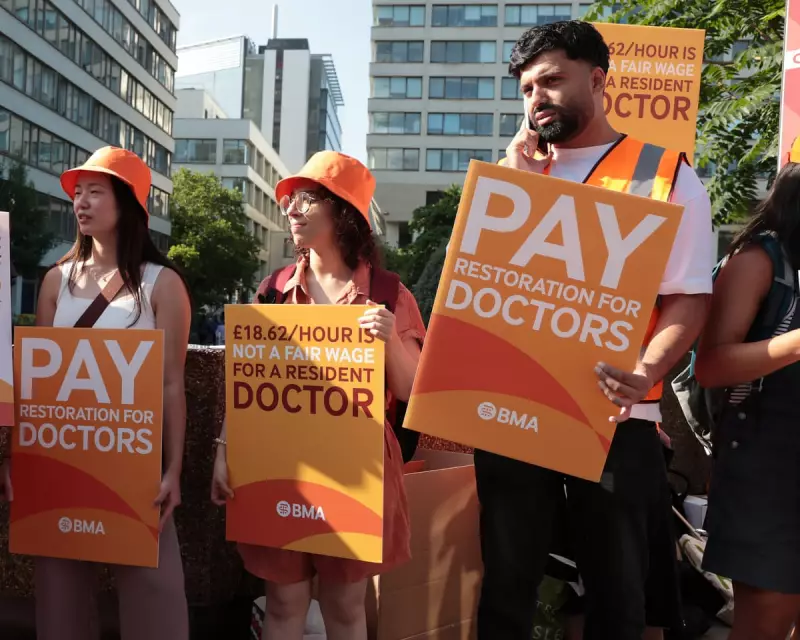
NHS Faces Major Disruption as Junior Doctors Walk Out
Thousands of junior doctors across England have commenced a significant five-day strike, marking the thirteenth such industrial action since their dispute over pay began in March 2023. The walkout started at 7am on Friday, intensifying pressure on the already stretched National Health Service and raising fears over patient care and NHS finances.
Financial and Operational Strain on the Health Service
Health leaders have issued stark warnings about the consequences of the ongoing strikes. The NHS Confederation and NHS Providers, which represent health trusts, stated that the continued industrial action is piling immense pressure on already-stretched budgets. The last round of strikes in July was estimated to have cost the health service a staggering £300 million.
Matthew Taylor, chief executive of the NHS Confederation, expressed grave concerns: "There is no doubt that patients will bear the brunt of this disruption, with tens of thousands of tests, appointments and operations likely to be delayed or cancelled." He further highlighted the timing's particular severity, noting that "with flu already beginning to bite there is a real risk that these strikes will leave the NHS limping into a very difficult winter."
Impact on Patient Care and Waiting Lists
The industrial action threatens to reverse recent progress in reducing NHS waiting lists. Figures released on Thursday had shown early signs of improvement, with September witnessing a slight fall after three consecutive months of rises. However, this positive trend now faces significant jeopardy.
During the previous junior doctors' strike, the NHS experienced massive service disruptions despite maintaining 93% of planned activity. More than 54,000 procedures and appointments were either cancelled or rescheduled, leaving countless patients in uncertainty and discomfort.
NHS England is urging patients to continue seeking care and to attend any planned appointments unless notified otherwise. Emergency services remain available, with patients advised to use 999 or A&E for critical needs, while NHS 111 and regular GP services continue to operate.
The Core Pay Dispute Remains Unresolved
The central conflict revolves around pay restoration. The British Medical Association (BMA) maintains that junior doctors require a 26% pay increase to restore their earnings when accounting for inflation. Conversely, Health Secretary Wes Streeting has refused to negotiate on pay, arguing that doctors have received an almost 30% rise over the past three years.
In a significant development, the BMA has stated that doctors must not be called off picket lines to cover planned NHS work during the strike. The union declared it would not agree to "derogations" - exceptions where junior doctors are asked to work when patient safety is at risk - unless NHS trusts have already cancelled planned activity and arranged alternative cover.
This five-day walkout represents one of the most substantial challenges to the NHS in recent months, testing both the government's resolve and the health service's resilience as it approaches the demanding winter period.






